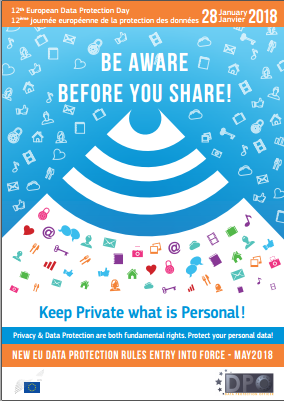Actions

On January 28th the EU and the Council of Europe celebrated the European Data Protection Day. On the same day, back in 1981, the Convention 108 – Convention for the Protection of Individuals with regard to Automatic Processing of Personal Data – was signed. It is for this very reason that the Council of Europe launched in 2016 a Data Protection Day to be celebrated each year on 28 January.
Data Protection Day is now celebrated across the globe and is called Privacy Day outside of Europe. In 2009, the United States Congress passed a resolution declaring January 28 as Data Privacy Day.
The Convention 108, is the first binding international instrument to protect an individual against abuses of the processing of their personal information. Moreover, it also imposes some restrictions on transborder flows of personal data to countries where legal regulation does not provide equivalent protection. At present the Convention has 51 ratifications.
The right to the protection of personal data, is a fundamental right laid down in Article 8 of the EU Charter of Fundamental rights and in article 16 of the Treaty of the Functioning of the EU. The right to the protection of personal data may be considered as one of the most important human rights of the modern age. In fact, topics such as Big Data, Artificial Intelligence, Machine and Deep learning, Internet of Things, Ubiquitous Computing, Surveillance and Data Transfer are examples that demonstrate the need for a right like this. This right also preserves the dignity and self-determination of an individual.
On this date, governments, parliaments, national data protection bodies and other bodies perform activities to raise awareness about the right to personal data protection and privacy.
In the course of our activities at eu-LISA, we process personal data. Thus, one of our jobs is keeping data secure. It is immeasurably important for the Agency to be compliant with the provisions of Regulation (EC) N° 45/2001 as well as other legal instruments in the area of the protection of personal data.


